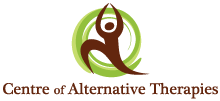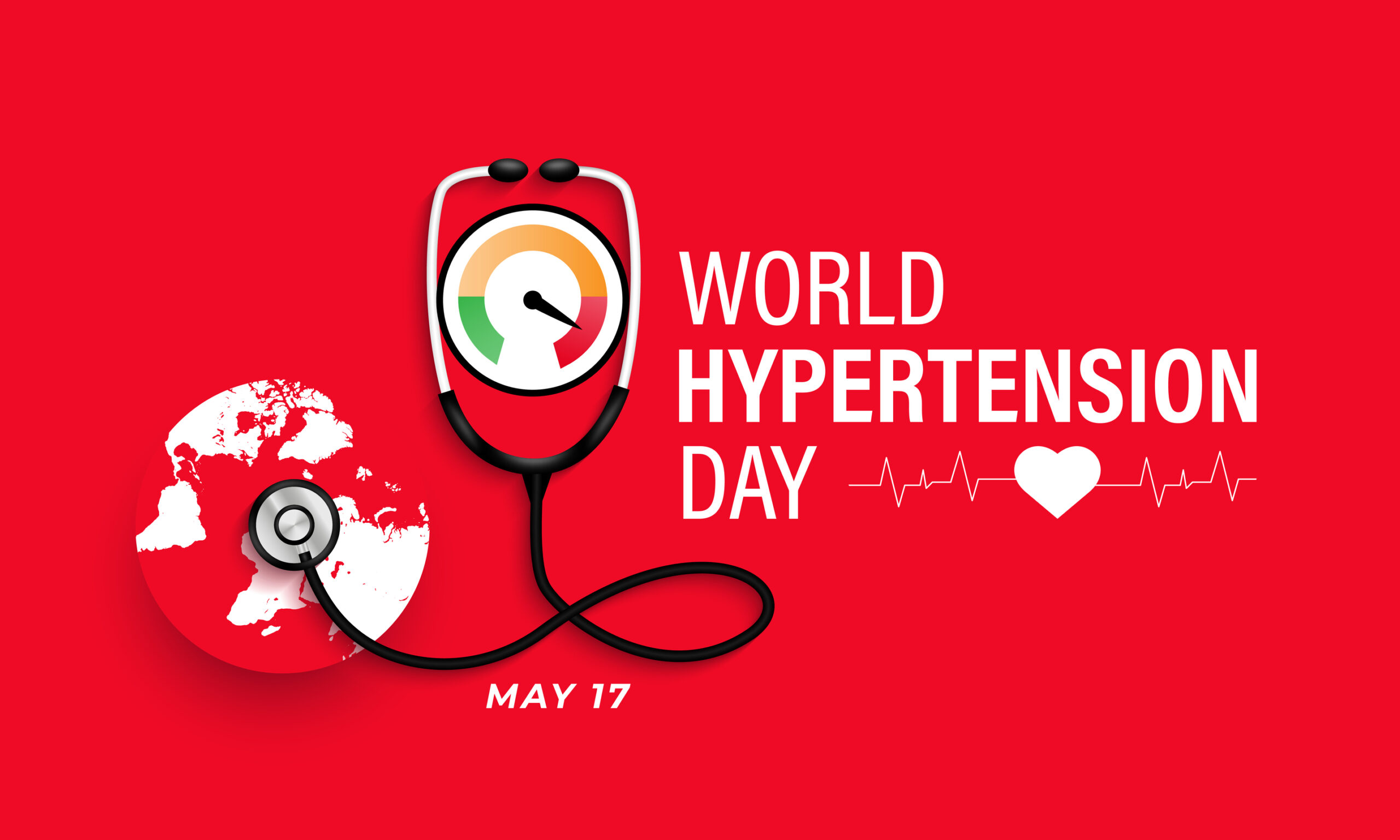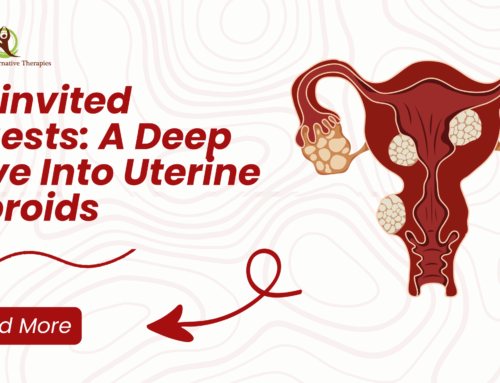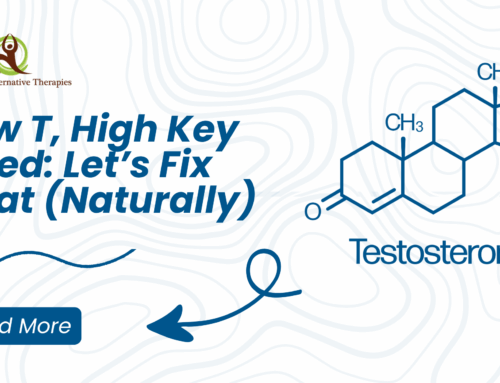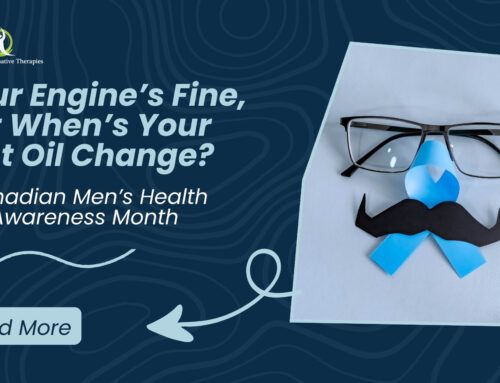May 17 is World Hypertension Day
World Hypertension Day
World Hypertension Day is observed every May 17th to raise awareness and promote hypertension prevention, detection, and control. High blood pressure is the main risk factor to develop cardiovascular disease.
To achieve the global target to reduce the prevalence of hypertension by 25% by 2025, WHO and the United States Centers for Disease Control and Prevention launched the Global Hearts Initiative in 2016. With its five technical packages – HEARTS (manage cardiovascular diseases), MPOWER (control tobacco), ACTIVE (increase physical activity), SHAKE (reduce salt consumption) and REPLACE (eliminate trans fat) – the Initiative aims to improve heart health worldwide.
In Canada, approximately 23% of adults aged 20 to 79 are living with diagnosed hypertension, have been diagnosed by a health-care professional, or are taking anti-hypertensive medication. This prevalence increases significantly with age, with over half (51%) of adults aged 60 to 79 having stage 2 hypertension, compared to 22% of adults aged 40 to 59.
Its prevalence is estimated to be between 9% and 30%. It is more common in women, older subjects, nonsmokers, subjects with mildly elevated office BP, pregnant women, and subjects without target organ damage.
While the national prevalence is around 23%, some provinces, like Newfoundland and Labrador, have a higher reported prevalence of high blood pressure.
At COAT we take an integrative supportive approach to managing your hypertension challenges.
Definition
Even though high blood pressure is a serious condition and is easily detectable, approximately one third of the individuals who have it are not aware of their condition. This is often because many people with high blood pressure do not have their blood pressure checked regularly and do not have any signs or symptoms until other serious problems arise. High blood pressure is also called the “Silent Killer”. The Canadian Hypertension Society recommends that all adults have their blood pressure checked every year, or, if additional risk factors (such as diabetes or cardiovascular disease (CVD)) are present, more frequently.
High blood pressure (hypertension) is a common condition in which the long-term force of the blood against your artery walls is high enough that it may eventually cause health problems, such as heart disease, and it is expressed as two numbers:
Systolic blood pressure (the top or higher number) is the pressure in the artery when the heart contracts. Diastolic blood pressure (the bottom or lower number) is the pressure in the artery when the heart relaxes between beats. Blood pressure normally changes throughout the day, but when either systolic or diastolic pressure stays constantly high it is called High blood pressure (hypertension).
We refer to optimal blood pressure if the systolic blood pressure is below 120 mmHg and diastolic blood pressure is below 80 mmHg.
Symptoms
Most people with high blood pressure have no signs or symptoms, even if blood pressure readings reach dangerously elevated levels.
Few people with high blood pressure may have headaches, shortness of breath or nosebleeds, but these signs and symptoms are not specific and usually do not occur until high blood pressure has reached a severe or life-threatening stage.
Causes
There are two types of high blood pressure.
Primary (essential) hypertension
For most adults, there is no identifiable cause of high blood pressure. This type of high blood pressure, called primary (essential) hypertension, tends to develop gradually over years.
Secondary hypertension
Other adults have high blood pressure caused by an underlying condition. This type of high blood pressure, called secondary hypertension, tends to appear suddenly and cause higher blood pressure than does primary hypertension.
Understanding Root Causes of Hypertension
Functional medicine practitioners assess various underlying factors contributing to hypertension, including:
- Insulin Resistance and Metabolic Dysfunction: Impaired glucose metabolism can lead to vascular inflammation and increased blood pressure.
- Chronic Stress and HPA Axis Dysregulation: Persistent stress activates the hypothalamic-pituitary-adrenal (HPA) axis, elevating cortisol levels and promoting hypertension.
- Nutrient Deficiencies: Low levels of magnesium, potassium, and omega-3 fatty acids are linked to increased blood pressure.
- Sleep Apnea: Obstructive sleep apnea contributes to sympathetic nervous system overactivity, raising blood pressure.
- Environmental Toxins and Heavy Metals: Exposure to certain toxins can impair vascular function and contribute to hypertension.
Risk factors
Here are the risk factors for high blood pressure:
- Age: The risk of high blood pressure increases as you age. Until about age 64, high blood pressure is more common in men. Women are more likely to develop high blood pressure after age 65.
- Race: High blood pressure is particularly common among people of African heritage, often developing at an earlier age than it does in Caucasians. Serious complications, such as stroke, heart attack and kidney failure, also are more common in people of African heritage.
- Family history: High blood pressure tends to run in families.
- Overweight or obese: It was estimated in the Framingham study J Chronic Dis.1974 that each 10% weight gain is associated with a 6.5 mm Hg increase in systolic BP. The more you weigh, the more blood you need to supply oxygen and nutrients to your tissues. As the amount of blood flow through your blood vessels increases, so does the pressure on your artery walls.
- Inactivity: People who are inactive tend to have higher heart rates. The higher your heart rate, the harder your heart must work with each contraction and the stronger the force on your arteries. Lack of physical activity also increases the risk of being overweight.
- Smokers: Not only does smoking or chewing tobacco immediately raise your blood pressure temporarily, but the chemicals in tobacco can damage the lining of your artery walls. This can cause your arteries to narrow and increase your risk of heart disease. Second-hand smoke also can increase your heart disease risk.
- Salt: Too much salt (sodium) in your diet. Too much sodium in your diet can cause your body to retain fluid, which increases blood pressure.
- Potassium: Too little potassium in your diet. Potassium helps balance the amount of sodium in your cells. A proper balance of potassium is critical for good heart health. If you do not get enough potassium in your diet, or you lose too much potassium due to dehydration or other health conditions, sodium can build up in your blood.
- Alcohol: Drinking too much alcohol. Over time, heavy drinking can damage your heart. Having more than one drink a day for women and more than two drinks a day for men may affect your blood pressure.
- If you drink alcohol, do so in moderation. For healthy adults, which means up to one drink a day for women and two drinks a day for men. One drink equals twelve ounces of beer, 5 ounces of wine or 1.5 ounces of 80-proof liquor.
- Stress: Elevated levels of stress can lead to a temporary increase in blood pressure. Stress-related habits such as eating more, using tobacco, or drinking alcohol can lead to further increases in blood pressure.
- Certain chronic conditions: Certain chronic conditions also may increase your risk of high blood pressure, including kidney disease, diabetes, and sleep apnea.
Diagnosis of Hypertension and follow-up
To diagnose high blood pressure, your health care provider examines you and asks questions about your medical history and any symptoms. Your provider listens to your heart using a device called a stethoscope.
Your blood pressure is checked using a cuff, usually placed around your arm. It is important that the cuff fits. If it is too big or too small, blood pressure readings can vary. The cuff is inflated using a small hand pump or a machine.
The Hypertension Canada Guidelines are part of our knowledge translation program, which targets healthcare professionals in clinical and community settings, provides annually updated standardized clinical practice guidelines to detect, treat, and control hypertension. The guidelines are updated every 5 years, and the process includes development of the guidelines, dissemination (both printed and electronic), and evaluation.
High Blood Pressure Integrative and Natural Approaches
Managing high blood pressure (hypertension) through natural and integrative approaches involves a combination of homeopathic remedies, tissue salts, Ayurvedic herbs, vitamins, minerals, and supplements. While these alternatives can support cardiovascular health, they should complement, not replace, conventional medical treatments.
A functional medicine approach to managing high blood pressure (hypertension) focuses on identifying and addressing the root causes of elevated blood pressure through personalized, holistic strategies. This method integrates lifestyle modifications, nutritional interventions, stress management, and targeted supplementation to restore balance and improve cardiovascular health.
Nutritional and Lifestyle Interventions
Implementing dietary and lifestyle changes is foundational in functional medicine for blood pressure management:
- Adopt the DASH Diet or a Cardiometabolic diet: Emphasize fruits, vegetables, whole grains, lean proteins, and low-fat dairy while reducing sodium intake to less than 1,500 mg/day.
- Increase Potassium Intake: Aim for 3,500–5,000 mg/day through foods like bananas, sweet potatoes, and spinach to counteract sodium’s effects.
- Regular Physical Activity: Engage in at least 150 minutes of moderate-intensity aerobic exercise and resistance training weekly to improve vascular health.
- Weight Management: Achieving and maintaining a healthy weight can significantly lower blood pressure.
- Stress Reduction Techniques: Incorporate practices like meditation, deep breathing, yoga, or Qigong to mitigate stress-induced blood pressure elevations.
Targeted Supplementation
Certain vitamins and minerals play a role in blood pressure regulation and supplementing specific nutrients may support blood pressure regulation:
- Magnesium: Helps relax blood vessels and has been shown to lower blood pressure.
- Omega-3 Fatty Acids: Found in fish oil, these fatty acids reduce inflammation and improve endothelial function.
- Coenzyme Q10 (CoQ10): An antioxidant that supports mitochondrial function and may lower blood pressure. This antioxidant may help lower blood pressure by reducing oxidative stress and relaxing blood vessels. It is also found in meat, fish, and nuts, and can be supplemented.
- Vitamin D: Deficiency is associated with hypertension; supplementation may help in individuals with low levels.
- Potassium: Potassium may be the best-known nutritional supplement for blood pressure regulation. It works by helping sodium leave the body through the urine and helping blood vessels relax.
- Dietary folate, vitamin B6, and vitamin B12 were significantly associated negatively with hypertension, indicating that these nutrients might have a protective effect against hypertension.
- Vitamin C supplementation: In a review of eight studies in people with high blood pressure resulted in a significant reduction of blood pressure in patients with essential hypertension.
- Probiotics: A 2020 study concluded that it seems that the modulation of the gut microbiota through high dose multiple species of fermented probiotics products could be effective on Blood Pressure in adults with/without Type2Diabetes Mellitus.
The Homeopathic Approach
Homeopathy emphasizes a personalized approach, meaning that the choice of remedy is based on the individual’s unique symptoms and health profile. The remedies that have been suggested for high blood pressure include:
- Aconitum Napellus for High blood pressure along with anxiety and restlessness.
- Glonoinum for high blood pressure accompanied by headache which is throbbing and bursting type.
- Crataegus oxyacantha is known as the “heart tonic,” it supports heart health and may help regulate blood pressure by improving circulation. Indicated to dissolve calcareous deposits in arteries to bring blood pressure down.
- Allium sativum (Garlic) is traditionally used to reduce cholesterol levels and support cardiovascular health, potentially promoting healthier blood pressure.
- Belladonna may be indicated when high blood pressure is accompanied by a flushed face and throbbing sensations.
- Nux Vomica is a medicine suitable for HBP, especially in young people who adopt sedentary and modern lifestyle habits like smoking, alcohol consumption, lack of exercise.
- Kali Phosphoricum is used to manage high blood pressure linked with stress and worries.
Tissue Salts
Tissue salts, also known as cell salts, are believed to support cellular function and overall health:
- Ferrum Phosphoricum: May help in reducing inflammation and supporting oxygenation of tissues.
- Natrum muriaticum: Traditionally used to balance fluid distribution in the body, which can be beneficial in blood pressure regulation. remedies for cases of high blood pressure in those with salt tooth (craving for salty foods).
Ayurvedic Approach
Ayurveda recommends various herbs for supporting cardiovascular health:
- Arjuna (Terminalia arjuna): Supports heart function and may help in maintaining healthy blood pressure levels.
- Ashwagandha: An adaptogen that helps reduce stress, a common contributor to high blood pressure.
- Sarpagandha (Rauwolfia serpentina): Traditionally used for its calming effects and potential to lower blood pressure.
Herbal Supplements
Herbal supplements that may support blood pressure management include:
- Oregano, possess antioxidant properties that may support cardiovascular health.
- Turmeric (Curcumin) possesses anti-inflammatory properties that may benefit cardiovascular health.
- Beetroot which is rich in nitrates, can help dilate blood vessels and improve blood flow. In human studies to date, beetroot supplementation has been reported to reduce systolic and diastolic blood pressure, inhibit platelet aggregation, improve vascular and endothelial function, reduce blood glucose, and improve insulin homeostasis, and possess reno-protective properties.
Integrative Therapies
Other complementary approaches that can enhance blood pressure control are:
- Acupuncture: May help lower blood pressure by modulating autonomic nervous system activity.
- Mind-Body Practices: Techniques like transcendental meditation have demonstrated benefits in reducing blood pressure.
Conclusion
Managing high blood pressure (hypertension) through natural and integrative approaches involves a combination of homeopathic remedies, tissue salts, Ayurvedic herbs, vitamins, minerals, and supplements.
A functional medicine approach to managing high blood pressure (hypertension) focuses on identifying and addressing the root causes of elevated blood pressure through personalized, holistic strategies. This method integrates lifestyle modifications, nutritional interventions, stress management, and targeted supplementation to restore balance and improve cardiovascular health.
While these alternatives can support cardiovascular health, they should complement, not replace, conventional medical treatments.
It is essential to consult with a healthcare provider before starting any new supplement or herbal regimen, especially if you are currently on medication or have underlying health conditions.
References
1. Hypertension Canada’s 2020 Comprehensive Guidelines for the Prevention, Diagnosis, Risk Assessment, and Treatment of Hypertension in Adults and Children
Rabi, Doreen M. et al. Canadian Journal of Cardiology, Volume 36, Issue 5, 596 – 624
2. https://hypertension.ca/guidelines/
3. Swapnil Hiremath, Ruth Sapir-Pichhadze, Meranda Nakhla, Jonathan Y. Gabor, Nadia A. Khan, Laura M. Kuyper, Marcel Ruzicka, Sheldon W. Tobe, Karen Tran, Doreen M. Rabi, Stella S. Daskalopoulou, Hypertension Canada’s 2020 Evidence Review and Guidelines for the Management of Resistant Hypertension, Canadian Journal of Cardiology, Volume 36, Issue 5,2020,Pages 625-634,ISSN 0828-282X,
https://doi.org/10.1016/j.cjca.2020.02.083.
4. Padwal RS, Bienek A, McAlister FA, Campbell NR; Outcomes Research Task Force of the Canadian Hypertension Education Program. Epidemiology of Hypertension in Canada: An Update. Can J Cardiol. 2016 May;32(5):687-94. doi: 10.1016/j.cjca.2015.07.734. Epub 2015 Aug 15. PMID: 26711315.
5. Rupa Health. (n.d.). A Functional Medicine Hypertension Protocol.
6. Melbourne Functional Medicine. (n.d.). High Blood Pressure | Functional Medicine for Heart Health.
7. Hyman, M. (n.d.). Treating The Underlying Causes Of High Blood Pressure with Dr. George Papanicolaou.
8. National Center for Biotechnology Information. (n.d.). Complementary and alternative medicine approaches to blood pressure.
9. Verywell Health. (n.d.). Simple Lifestyle Changes That Can Help Keep High Blood Pressure Under Control.
10. https://www.drhomeo.com/?s=high+blood+pressure
11. Souvik Dutta, Subhasish Ganguly, Shyamal Kumar Mukherjee, Priyanka Ghosh, Pallavi Hazra, Aniket Singha Roy, Abdur Rahaman Shaikh, Sk.Swaif Ali, Satarupa Sadhukhan, Munmun Koley, Subhranil Saha,Efficacy of individualized homeopathic medicines in intervening with the progression of pre-hypertension to hypertension: A double-blind, randomized, placebo-controlled trial,EXPLORE,Volume 18, Issue 3,
2022, Pages 279-286, ISSN 1550-8307https://doi.org/10.1016/j.explore.2021.05.007.
Pritha Mehra, Usefulness of homeopathy in essential hypertension: an exploratory interventional trial, International Journal of High Dilution Research 2015; 14(1):16-19
12. Dr. Sultana Perween and Dr. Shamim Alam. Role of homoeopathy in hypertension. International Journal of Homoeopathic Sciences 2020; 4(3): 17-20
13. Varanasi R, Kolli R, Rai Y, et al. Effects of individualised homoeopathic intervention in Stage I essential hypertension: A single-blind, randomised, placebo-controlled trial. Indian J Res Homoeopathy 2020; 14:3-14. doi: 10.4103/ijrh.ijrh_93_19
14. Zhao D, Liang Y, Dai S, Hou S, Liu Z, Liu M, Dong X, Zhan Y, Tian Z, Yang Y. Dose-Response Effect of Coenzyme Q10 Supplementation on Blood Pressure among Patients with Cardiometabolic Disorders: A Grading of Recommendations Assessment, Development, and Evaluation (GRADE)-Assessed Systematic Review and Meta-Analysis of Randomized Controlled Trials. Adv Nutr. 2022 Dec 22;13(6):2180-2194. doi: 10.1093/advances/nmac100. PMID: 36130103; PMCID: PMC9776655.
15. Steven G. Chrysant, Pathophysiology of the Antihypertensive and Cardiovascular Properties of Potassium, Cardiology in Review, (2025).
16. Zhang D, Cheng C, Wang Y, Sun H, Yu S, Xue Y, et al. Effect of Vitamin D on Blood Pressure and Hypertension in the General Population: An Update Meta-Analysis of Cohort Studies and Randomized Controlled Trials. Prev Chronic Dis 2020; 17:190307. DOI: http://dx.doi.org/10.5888/pcd17.190307
17. Yuqing Xiong, Jiamin Huang, Adwoa Nyantakyiwaa Amoah, Bingrui Liu, Yacong Bo, Quanjun Lyu, Folate, vitamin B6, and vitamin B12 intakes are negatively associated with the prevalence of hypertension: A national population-based study, Nutrition Research, Volume 112,2023, Pages 46-54, ISSN 0271-5317,
https://doi.org/10.1016/j.nutres.2023.02.006.
18. Guan Y, Dai P, Wang H. Effects of vitamin C supplementation on essential hypertension: A systematic review and meta-analysis. Medicine (Baltimore). 2020 Feb;99(8): e19274. doi: 10.1097/MD.0000000000019274. PMID: 32080138; PMCID: PMC7034722.
19. Ried K. Garlic lowers blood pressure in hypertensive subjects, improves arterial stiffness and gut microbiota: A review and meta-analysis. Exp Ther Med. 2020 Feb;19(2):1472-1478. doi: 10.3892/etm.2019.8374. Epub 2019 Dec 27. PMID: 32010325; PMCID: PMC6966103.
20. Mirmiran P, Houshialsadat Z, Gaeini Z, Bahadoran Z, Azizi F. Functional properties of beetroot (Beta vulgaris) in management of cardio-metabolic diseases. Nutr Metab (Lond). 2020 Jan 7; 17:3. doi: 10.1186/s12986-019-0421-0. PMID: 31921325; PMCID: PMC6947971.
21. Omega-3 and omega-6 polyunsaturated fatty acids and metabolic syndrome: A systematic review and meta-analysis Jang, Haeun et al. Clinical Nutrition, Volume 39, Issue 3, 765 – 773
22. Ejtahed HS, Ardeshirlarijani E, Tabatabaei-Malazy O, Hoseini-Tavassol Z, Hasani-Ranjbar S, Soroush AR, Larijani B. Effect of probiotic foods and supplements on blood pressure: a systematic review of meta-analyses studies of controlled trials. J Diabetes Metab Disord. 2020 Apr 18;19(1):617-623. doi: 10.1007/s40200-020-00525-0. PMID: 32550214; PMCID: PMC7271294.
23. Ramavtar Sharma, Arun Goyal, Renu Singh, Shruti Khanduri, Sarada Ota, Sumeet Goel, Rakesh Kumar Rana, Richa Singhal, Vinod Kumar Shahi, Narayanam Srikanth, Leimapokpam Swasticharan, Kartar Singh Dhiman,Effect of Ayurveda intervention in the integrated management of essential hypertension- a retrospective observational study,Journal of Ayurveda and Integrative Medicine,Volume 12, Issue 3,2021,Pages 521-528,ISSN 0975-9476,https://doi.org/10.1016/j.jaim.2021.04.012.
24. Sperling LS, Mechanick JI, Neeland IJ, et al. The CardioMetabolic Health Alliance: working toward a new care model for the metabolic syndrome. J AmColl Cardiol. 2015;66(9):1050-1067. doi: 10.1016/j.jacc.2015.06.1328.
25. Naka KK, Papathanassiou K, Bechlioulis A, et al. Determinants of vascular
function in patients with type 2 diabetes. Cardiovasc Diabetol. 2012; 11:127.
doi:10.1186/1475-2840-11-127.
26. Galassi A, Reynolds K, He J. Metabolic syndrome and risk of cardiovascular
disease: a meta-analysis. Am J Med. 2006;119(10):812-819. doi:10.1016/j.
amjmed.2006.02.031.
27. Vardavas CI, Linardakis MK, Hatzis CM, Saris WH, Kafatos AG. Cardiovascular
disease risk factors and dietary habits of farmers from Crete 45 years after the first description of the Mediterranean diet. Eur J Cardiovasc Prev Rehabil. 2010;17(4):440-446. doi:10.1097/HJR.0b013e32833692ea.
